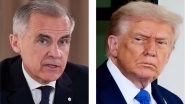Madrid, Dec 12 (PTI) India is hopeful that the world leaders will reach "some consensus" on the contentious Article 6 of the historic Paris Agreement, as the climate negotiations entered the last leg of the COP25 conference here.
Under the Article 6 of the Paris Agreement signed in 2015, the countries had agreed to set up a global carbon market system to help developing countries decarbonise their economies at lower cost.
However, the countries have tried and failed to agree the rules governing this mechanism.
"The negotiations are going as per an agenda which was pre-decided. There are different bodies which deal with different things. The critical decision point in this COP is markets – i.e. Article 6," Ravi Shankar Prasad, India's chief negotiator from the Ministry of Environment, Forests and Climate Change told PTI.
"Lot of discussions have been going on there and India has been participating in a constructive and a proactive manner because we want to send the right signals to the private sector," Prasad said.
The world leaders have gathered here in the Spanish capital for the UN Climate Change Conference COP 25, held from December 2-13.
It is the last section of the Paris accord rulebook which remains unresolved and has the potential to make or break efforts to curb emissions.
Prasad reiterated that India needed to look at the pre-2020 action taken by the developed world.
"If those things are incorporated, I think we have made a positive contribution in this issue of climate change. Hopefully, there will be some consensus on carbon markets," he said.
Emphasising that the "proceedures" which have been followed earlier must be respected, he said India had asked for the continuation and smooth transition of the Clean Development Mechanism (CDM).
CDMs is one of the flexible mechanisms defined in the Kyoto Protocol that provides for emissions reduction projects which generate Certified Emission Reduction units which may be traded in emissions trading schemes.
"We are supporting the issue of avoidance of double counting and we want a system where incentives are created for the private sector to come forward and contribute to climate action," Prasad said.
"There is a climate action which the countries are taking which will be reported in their NDCs, we want something to be done outside that, and that would be the market contribution from the private sector," he said.
Prasad noted that "right incentives" should be provided in the deal for private sector to come and participate.
"Provide a level playing field to them so that the rules of the game, the predictability and the fact that these things will be honoured are there on the table," he said.
The Paris Agreement was adopted by 195 parties at the UN climate conference "COP 21" held in the French capital Paris in 2015 with an aim to reduce the hazardous greenhouse gas emissions.
Nineteen members of the G20, except the US, have voiced their commitment to the full implementation of the deal.
The objective of the Paris Agreement is to prevent an increase in global average temperature and keep it well below 2 degree Celsius.
Prasad noted that India was trying to bridge the gap between the understanding that different parties have and leave some technical details for later.
"There is still a lack of common understanding of things so those issues are being discussed. Two ministers have been given responsibility to work on that, and we are working with them. So we are trying to find out some solution, and once they are there, everyone should agree to that,” he said.
"If we are able to achieve an agreement on markets it would be a big achievement. That is the main outcome that according to us if we are able to deliver the COP will be a success," he said.
(The above story is verified and authored by Press Trust of India (PTI) staff. PTI, India’s premier news agency, employs more than 400 journalists and 500 stringers to cover almost every district and small town in India.. The views appearing in the above post do not reflect the opinions of LatestLY)













 Quickly
Quickly


